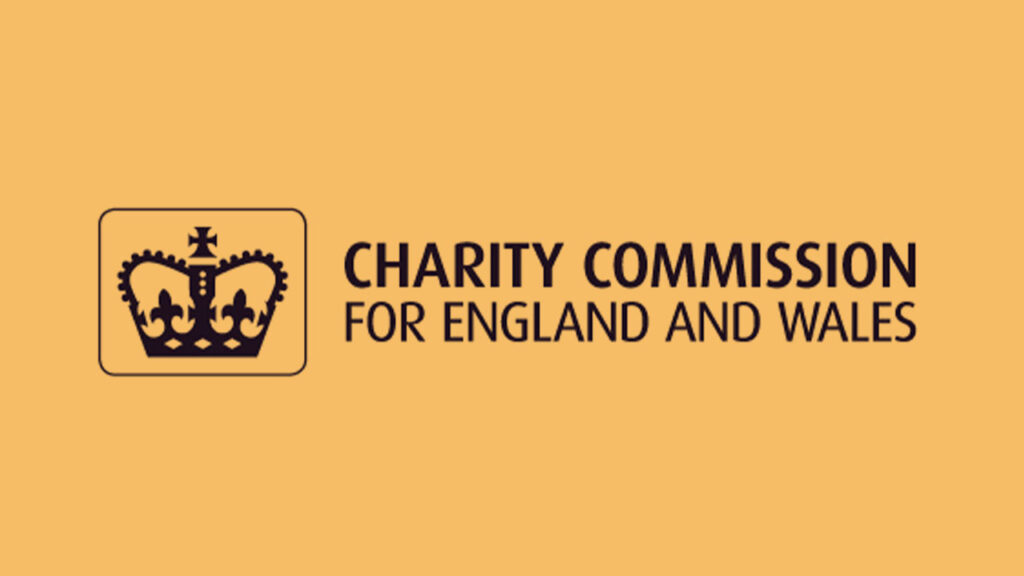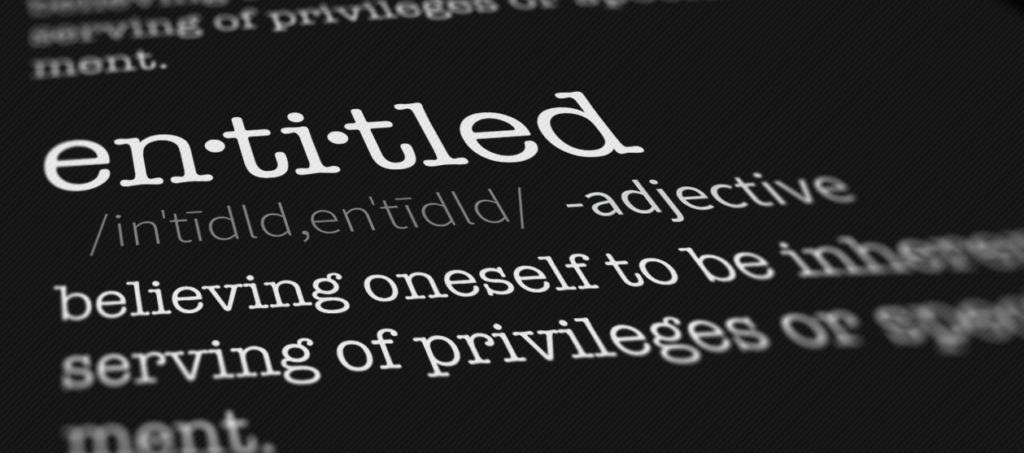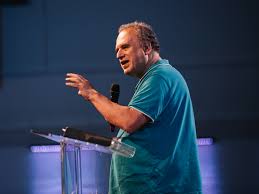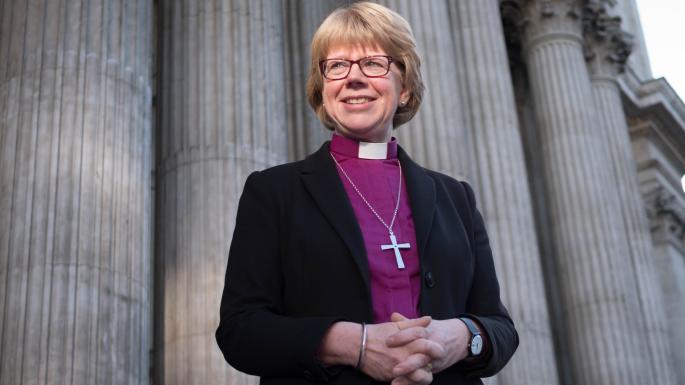by Ruth Grayson

I sometimes wonder if the Church has lost its sense of priorities.
Some time ago, we wanted to attend a service of dedication for a well dressing in a nearby Derbyshire village. But the relevant parish website contained no information about any services, even regular Sunday ones. Nor were there any contact details for a local vicar. The only telephone number listed was that of the safeguarding officer.
Another time, I was taken aback by the message in an ‘out of office’ autoreply from the chaplain of a Christian centre. This stated that while no one would be available to answer emails until the following Monday, I should ring an alternative number if I had a safeguarding concern. No matter if I had another pastoral issue, a health or relational crisis, or indeed if I was feeling suicidal. Any problem not relating to safeguarding could evidently wait a few more days.
I doubt if either of these experiences is unusual. Most church websites now have a page dedicated to their particular safeguarding policies. In some cases, as in that of the parish church mentioned above, contact details for a safeguarding officer are more prominently displayed than those for a vicar, minister or pastor. It can easier to find safeguarding information than details of services, other church activities, or indeed any statement about the church’s purpose and mission. References to safeguarding exponentially outnumber references to God in many if not most websites.
If this is not enough, to reinforce their commitment to safeguarding, churches also seek to reassure themselves that those wishing to serve it in any way should undergo safeguarding training. This can apply even to support functions, such as arranging flowers, making coffee, singing in entirely adult choirs, reading a lesson or leading intercessions, as well as to the more obvious leadership roles involving regular contact with vulnerable people such as children and the elderly. While I can see the point of screening and training courses for those engaged in these roles as well as in any pastoral or one-on-one activities, I fail to see their relevance in many other cases. I am not the first to baulk at this. In 2010, a group of flower-arranging ladies in Gloucester cathedral made national headlines by resigning en masse in protest at the sacking of one of their number for refusing to undergo a [then] CRB check.
The following communication from a church office was sent to members of its adult choir: …we are very concerned to do everything to make our church as safe for everyone to attend as we can. We are also concerned that everyone who takes on a role is suitably resourced. Moreover, following the various high profile cases against some who have been in positions of authority and trust in the church yet used this as a vehicle to abuse, the Church of England is committed to changing the culture of the whole church to one of honesty and openness, where no would be abuser has a place to hide and where everyone, child or adult, can feel safe. One of the ways they are attempting this is to ensure that everyone who has a role in the church undertakes safeguarding training to an appropriate level and that this is renewed every three years.
For your role/s of Singer [in the choir] you are required to complete the following training Safeguarding Basic Awareness (C0).
This email resulted in one choir member promptly leaving the group. One outcome of this ‘surfeit of safeguarding’ is that churches are losing some of their existing volunteers and are failing to recruit others. But there is another development that is equally worrying. It may be fostering an atmosphere of distrust in the church – the very opposite of what it is intended to do, and the very opposite of what a church stands for.
A notorious example of this is the now discredited case against the late Bishop George Bell of Chichester. A major factor in this case was almost certainly the context of the times as well as of its location. The diocese of Chichester did, sadly, have a very bad reputation with regard to genuine cases of child sexual abuse, and it had been the subject of a number of investigations and official reviews for some time. To this background must be added the growing awareness of abuse in society at large, brought about by the Soham murders at the beginning of the 21st century and the subsequent introduction of CRB and later DBS checks in many public and private organisations.
Another factor in the Bell case must be the fallout from the Jimmy Savile case that resulted in the growth in the #MeToo movement. That not all allegations were genuine was highlighted by the outcomes of such high profile investigations as Operation Yewtree in the 2012-13 and the Henriques report following Operation Midland in 2019. Meanwhile, an inordinate amount of damage was done to individual reputations and the lives and careers of those concerned as well as to their families. One victim was (Lord) Leon Brittan, who died without ever knowing that his name had been cleared. And a number of priests and vicars have lost their jobs and not been reinstated despite having been cleared of any wrongdoing. At least one such person has committed suicide. Such is the effect of public opinion, however wrongly informed.
In the case of George Bell, the knee-jerk reaction by the archiepiscopal and diocesan authorities to the posthumous allegation of abuse 60 years after his death is perhaps a classic example of the febrile atmosphere caused by such trends and the overkill in their response. This is explored more fully in a newly published book on the case https://www.ekklesiapublishing.co.uk/books/presumption-of-guilt/. While by no means the sole factor, overzealous safeguarding concerns almost certainly played a part in the way the diocesan core group handled the allegation. This can, as in the Bell case, lead to an immediate presumption that the person named in the complaint is guilty; and because of the Church’s reluctance to adhere to independent procedures for investigation and assessment it quickly results in a slur on, if not the actual ruination of, that person’s reputation, regardless of the eventual outcome.
The need for independent oversight of church safeguarding was highlighted in the recent IICSA report but has yet to be implemented. Currently the Church is acting as both judge and jury in such cases, and is completely ignoring the basic principle of the legal system in this country: that of the presumption of innocence. In general, too, a DBS check means that an individual must prove innocence, whereas in law it is for the prosecution to prove guilt. And of course such a check is only as good as the day on which it is done.
This raises one final question. What evidence exists to show that all these checks, courses and safeguarding measures are helping to reduce abuse throughout the Church? Indeed, how could this be measured? The number of cases reported in the press does not seem to have diminished in recent years, as manifested by examples highlighted by the Soul Survivor and Nine o’Clock scandals and the cover-ups at a very senior clerical level noted in the Makin report.
Moreover, the costs involved in implementing the current approach are clearly substantial. All 42 dioceses of the C of E in England must have a safeguarding officer on their staff, sometimes supported by one or more administrators; backed by a National Safeguarding Team to produce training materials and courses. Meanwhile, my own experience would indicate that more people may be put off any kind of church work under the present system than are caught committing any form of abuse. And it is certainly well known that abusers are adept at operating ‘under the radar’ and may escape detection for many years, if not for life, whatever precautions may be taken to try to stop them.
None of this is to say that the Church does not need to have safeguarding practices. It most certainly does, and they have been too long in coming. But the system at present is akin to taking a sledghammer to crack a nut, and the nuts that are being cracked are not the right ones. Ultimately, safeguarding is the responsibility of the state, and the Church needs to acknowledge this. The George Bell case was referred to the police not once, but twice, and thrown out not once, but twice. It took two independent reviews and considerable expense before it grudgingly admitted its error in taking the law into its own hands.
Safeguarding should be seen as one aspect of the Church’s core function of ‘bringing good news to the poor’, not as a mission in itself. A good place to start would be by working with the law to uphold the presumption of innocence, which passing names to the vicar or safeguarding officer of any local church completely undermines. And within an individual church, it means subsuming safeguarding policies under a more general heading of pastoral care than is currently the case in too many instances. A better sense of its priorities might thereby be regained.
Ruth Grayson







